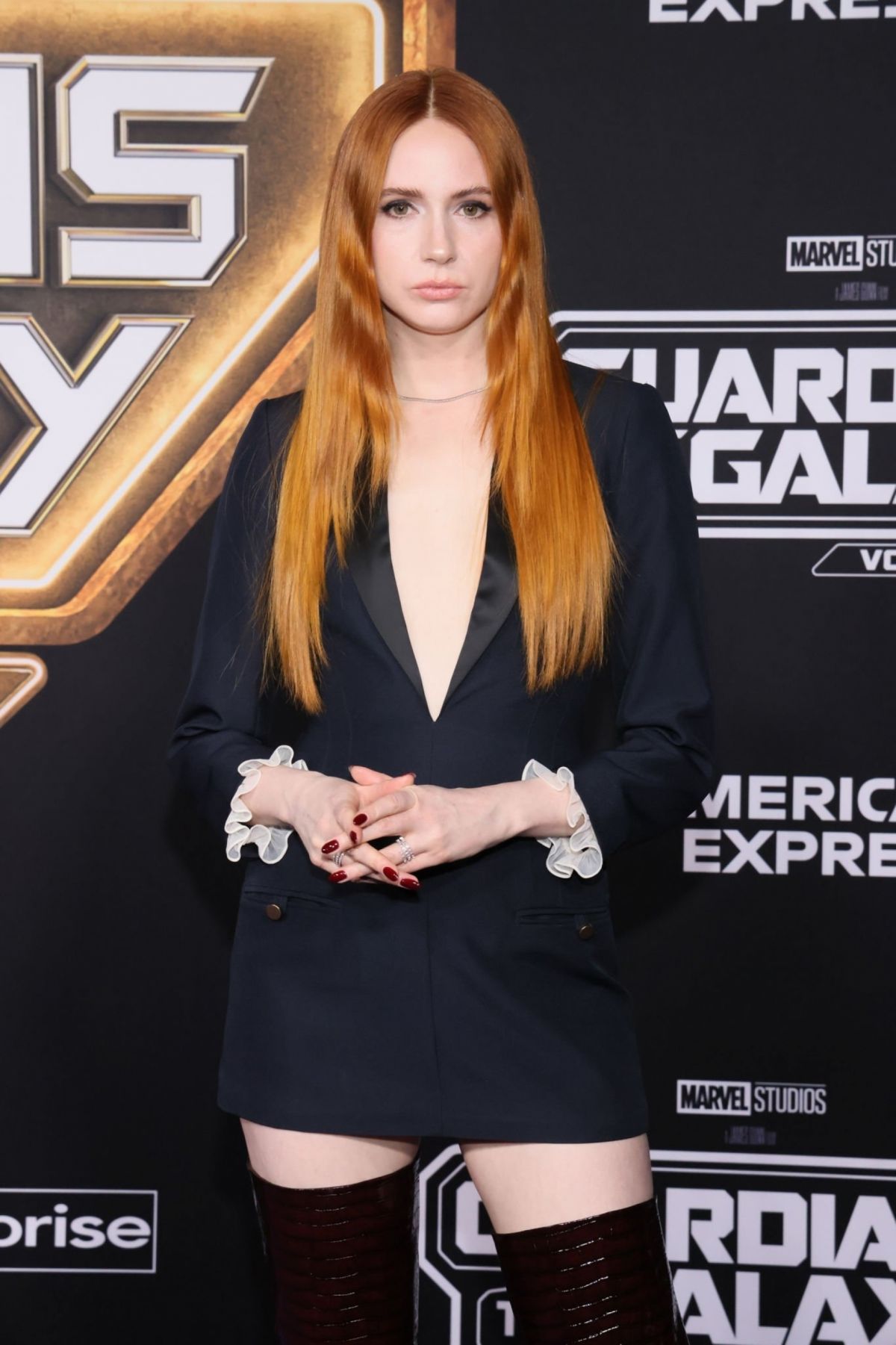Karen Derrico Clothing Line - A Look At The Meme's Influence
When you hear "Karen," what pops into your mind? For many, it brings up a very specific picture, doesn't it? A particular kind of attitude, a certain sort of expectation, perhaps even a haircut that has become, well, quite famous online. The phrase has, you know, sort of taken on a life of its own in our daily conversations and on the internet. It has become a shorthand for a certain type of public behavior, especially when someone seems to be acting a bit demanding or, really, quite entitled in a situation where they might not have the upper hand.
So, too it's almost natural to wonder how this widespread cultural idea might influence other areas of life, like, say, fashion. Could a "Karen Derrico clothing line" even exist? And if it did, what would it represent? Would it be a playful nod to the meme, or something that tries to completely step away from that whole perception? It's a pretty interesting thought, especially when you think about how much online culture shapes what we see and how we react to things, isn't it?
This discussion isn't about a person named Karen Derrico who has an actual clothing line, you see. Instead, it is about exploring the concept of such a line, using what we already know about the "Karen" meme. We're going to think about how this widely recognized cultural shorthand could, in a way, inform or even inspire a collection of clothes. It's a curious thought experiment, basically, looking at how an online phenomenon might cross over into the world of style and what that might mean for people who wear those clothes.
- Don Luna Photos
- Reba Milf
- Lindsey Hoskins Associates Couple Family Therapy
- Laser Flash Carmel Indiana
- Brady Police Department
Table of Contents
- Who is Karen, Really?
- The Origins of a Viral Idea
- "Don't Be a Karen" - A Social Warning
- So, What Would a "Karen Derrico Clothing Line" Even Look Like?
- Could It Be a Satirical Statement?
- Or a Guide to Avoiding the "Karen" Label?
- What Kind of "Karen Derrico Clothing Line" Would People Want?
- The Power of Online Culture and Fashion
- Karen Derrico Clothing Line - Beyond the Meme?
Who is Karen, Really?
The term "Karen" has, quite simply, become a bit of a household word, hasn't it? It's a kind of slang expression, typically used to describe a woman, often thought of as middle-class, who comes across as feeling entitled or, perhaps, just too demanding. You see it a lot in online jokes, often showing women who, you know, are asking to speak to the manager. This image has spread pretty widely across the internet, becoming nearly everywhere you look online. It's sort of a shorthand for a certain kind of public interaction that people tend to find frustrating, or even a bit rude, basically.
This label isn't, of course, about any specific person named Karen Derrico, but rather a collective idea. It's a way to point out certain behaviors that society, particularly online communities, has decided are, well, not so great. The term has grown beyond just a name; it represents a set of actions and attitudes. It's often linked to women who are perceived as being overly assertive in public spaces, perhaps about something that isn't really a big deal. The whole thing, in a way, shows how quickly ideas can spread and become part of our common language, doesn't it?
The concept of "Karen" has, moreover, been portrayed in many different online pictures and short videos, often showing these sorts of demanding situations. It's a way for people to, you know, talk about frustrating experiences without having to go into a lot of detail. The pictures often show a woman with a particular look or a specific type of haircut, which has, funnily enough, become part of the meme itself. It's a pretty powerful example of how a simple name can take on such a broad meaning, wouldn't you say?
- Exploring The World Of Roblox Condo Games A Thrilling Playground For Creativity
- Unraveling The Mystery Barron Trump Car Accident
- Mylene Mae
- Grimes Sucks
- Anthony Scaramucci Live
The Origins of a Viral Idea
So, where did this whole "Karen" thing even start? The meme, as we know it, has a history, like most popular online ideas. One of the first really popular examples that gave the name "Karen" to an annoying woman was something called "Nintendo Switch Karen." This particular meme really took off after a promotional video for a new product was released. It just sort of caught on, and people started using "Karen" as a way to describe a certain type of person who might be, you know, acting a bit difficult or overly particular about things. It's interesting how a single instance can spark such a wide trend, isn't it?
The idea behind the "Karen" meme grew popular because it seemed to hit on something many people had experienced or observed. It’s a way of, basically, categorizing a certain kind of public behavior that can be quite irritating. The meme's history and origin show how online communities can pick up on a specific instance and then, you know, generalize it into a broader cultural symbol. It’s not always about a real person, but rather a representation of a common complaint or observation. This kind of organic growth is, in a way, pretty typical for how memes spread and gain traction, isn't it?
This widespread recognition means that when you mention "Karen," most people immediately get what you're talking about. It’s a shared cultural reference point, and that, you know, makes it a powerful tool for communication, even if it's just for a quick laugh or a sigh of exasperation. The meme's story is, in some respects, a good example of how internet culture can create new words and phrases that become part of our everyday conversations. It shows how something that starts as a joke can actually reflect deeper societal observations about behavior and expectations.
"Don't Be a Karen" - A Social Warning
"Don't be a Karen" is a warning that people often use to tell someone to stop behaving rudely. It's a pretty direct way of saying, you know, "check your attitude." This phrase has become a common part of our language, especially online, because it quickly conveys a message about appropriate public conduct. It’s like a little reminder to be more considerate, or perhaps, just a little less demanding in your interactions with others. The very use of the phrase shows how much this idea has seeped into our general awareness, wouldn't you say?
The term "Karen" is a slang expression that, as we’ve talked about, typically points to a middle or upper-class white woman who has a sense of entitlement. This specific characterization, in a way, adds layers to the meme's meaning, linking it to broader discussions about privilege and social interactions. It's not just about being rude; it's about a particular kind of rudeness that comes from a place of perceived social standing. This nuance is, you know, what makes the meme so recognizable and, for some, so relatable, basically.
The widespread use of the "Karen" meme, especially the one about women asking to speak to the manager, has made it nearly ubiquitous online. You can find it almost anywhere on the internet, from social media posts to funny videos. This common presence means that the warning "don't be a Karen" is easily understood by a wide audience. It’s a simple, yet effective, way to encourage more polite and respectful behavior in various situations. The meme has, you know, sort of become a social mirror, reflecting back certain behaviors that many people find problematic.
So, What Would a "Karen Derrico Clothing Line" Even Look Like?
Given all this talk about the "Karen" meme, it makes you wonder, doesn't it, what a "Karen Derrico clothing line" would actually be? If such a line were to exist, how would it, you know, engage with the widely known meme? Would it lean into the satirical side, offering items that playfully poke fun at the stereotype? Or would it aim to completely redefine the name, presenting clothes that are the absolute opposite of what the meme suggests? It's a rather interesting design challenge, basically, trying to translate a cultural phenomenon into wearable fashion.
One approach for a "Karen Derrico clothing line" might be to, you know, embrace the humor. Imagine t-shirts with subtle nods to the meme, perhaps a pattern that looks like a manager's office door, or maybe even a graphic that playfully depicts someone asking for assistance in a very polite, almost exaggerated way. This could be a way to disarm the negative connotations of the meme, turning it into something lighthearted and, you know, a bit self-aware. It's a risky move, to be honest, but it could also be quite clever if done well.
Alternatively, a "Karen Derrico clothing line" could seek to reclaim the name, to, you know, present a different kind of "Karen." This might involve creating pieces that are effortlessly chic, understated, and perhaps, very approachable. Think soft fabrics, calming colors, and designs that suggest a quiet confidence rather than a demanding attitude. This would be a way to, basically, turn the negative stereotype on its head, showing that a "Karen" can be someone who is kind, respectful, and very much in control, but in a good way.
Could It Be a Satirical Statement?
A "Karen Derrico clothing line" could very well be a satirical statement, couldn't it? It could be a way for people to, you know, wear their understanding of internet culture on their sleeves, quite literally. Picture items that are, perhaps, a bit over-the-top in a humorous way, like a very structured bob-cut wig accessory, or perhaps a visor that says "Manager on Duty" in a playful font. This kind of line would be all about, basically, inside jokes and shared cultural references, appealing to those who are very online and appreciate a good bit of irony.
Such a line would need to be, you know, very clear in its intentions. It would have to be obvious that it's poking fun, rather than, you know, endorsing the behaviors associated with the meme. This would involve clever marketing and perhaps, a very specific brand voice that is clearly humorous and self-aware. It's a fine line to walk, really, between being funny and being misunderstood. But if done correctly, a satirical "Karen Derrico clothing line" could be a conversation starter and a way to, you know, engage with the meme in a new and unexpected way.
The power of satire, after all, is in its ability to highlight societal issues through humor. A clothing line that satirizes the "Karen" meme could, in a way, draw attention to the very behaviors it criticizes, making people think about them more deeply. It's a bit like holding up a mirror, but with a funny frame around it. This approach for a "Karen Derrico clothing line" would rely heavily on its audience's ability to, you know, get the joke and appreciate the social commentary behind the designs.
Or a Guide to Avoiding the "Karen" Label?
What if a "Karen Derrico clothing line" aimed to be a guide to avoiding the "Karen" label altogether? This would be a completely different approach, wouldn't it? Instead of mocking the stereotype, it would offer clothes that, you know, promote qualities like patience, understanding, and quiet dignity. Imagine soft, flowing fabrics, comfortable yet stylish cuts, and colors that evoke calmness and approachability. This line would be about, basically, projecting an aura of peace and kindness, rather than confrontation.
The designs could, perhaps, feature subtle messages or symbols that represent empathy and respect. Think of a simple, elegant scarf that, you know, suggests grace, or a jacket that feels warm and inviting, rather than rigid and demanding. This kind of "Karen Derrico clothing line" would be for someone who wants to consciously choose to be perceived as thoughtful and considerate in their interactions. It's a way to, you know, dress the part of a good citizen, so to speak, in a very subtle and fashionable way.
This approach would, in some respects, be about empowering people to express their true selves, which are hopefully far removed from the meme. It's about showing that style can be a reflection of inner qualities, and that you can dress in a way that, you know, encourages positive interactions. A line like this could be a quiet statement against the negativity of the meme, offering an alternative vision of what it means to be a woman in public. It's about, basically, wearing your values, which is a pretty powerful idea.
What Kind of "Karen Derrico Clothing Line" Would People Want?
Thinking about what kind of "Karen Derrico clothing line" people would actually want is a pretty interesting question, isn't it? It really depends on how they feel about the meme itself. Some might be drawn to the humorous, satirical angle, finding joy in clothes that playfully acknowledge a shared cultural joke. Others, however, might prefer a line that actively works against the stereotype, offering pieces that promote a sense of calm and kindness. It’s a bit of a split, basically, in terms of what resonates with different groups of people.
The success of any hypothetical "Karen Derrico clothing line" would, you know, hinge on its ability to connect with its audience's feelings about the meme. If it's too aggressive in its satire, it might alienate some. If it's too subtle in its attempt to redefine the name, it might not be understood. It’s a balancing act, really, trying to capture the public mood while also offering something new and appealing. The clothing line would need to be very clear about its message, whatever that message ends up being, to avoid confusion and, you know, potential backlash.
Ultimately, people want clothes that make them feel good and that, you know, reflect their personality. So, a "Karen Derrico clothing line," whether satirical or redemptive, would need to offer quality and style that stands on its own. The meme connection might draw initial attention, but the clothes themselves would have to be, basically, desirable for people to actually buy and wear them. It’s about more than just the name; it’s about the actual garments and how they make people feel when they put them on.
The Power of Online Culture and Fashion
The ubiquity of the "Karen" meme, how it's, you know, everywhere online, really shows the power of online culture. It highlights how quickly ideas, even those based on a negative stereotype, can spread and become part of our everyday lives. This widespread presence means that online culture has a significant influence on how we perceive things, including, potentially, fashion. It’s a bit like a giant, shared conversation that never really stops, basically, constantly shaping our views and expressions.
When you consider a "Karen Derrico clothing line," you're really looking at how fashion can respond to, or even participate in, these online cultural moments. Fashion has always been a way for people to express themselves and to, you know, show their connection to broader social trends. So, it’s not too surprising that a meme as popular as "Karen" could spark ideas about clothing. It’s a pretty direct example of how what happens on the internet can, you know, spill over into the physical world of what we wear.
This interaction between online culture and fashion also means that brands have to be very aware of what’s happening in the digital space. A clothing line, even a conceptual one like "Karen Derrico clothing line," would need to understand the nuances of the meme to effectively communicate its message. It's about being culturally literate, basically, and knowing how to speak to an audience that is, you know, constantly immersed in online trends and discussions. The internet has, in some respects, made fashion even more responsive to the immediate pulse of popular culture.
Karen Derrico Clothing Line - Beyond the Meme?
Could a "Karen Derrico clothing line" ever truly move beyond the meme that inspired its concept? That's a very big question, isn't it? For any brand, especially one with such a strong, specific cultural connection, the challenge is always to create something that has lasting appeal, something that, you know, transcends its initial inspiration. If the line is too tied to the meme, it

Karen Gillan Net Worth: How much the Guardians of the Galaxy star has

KAREN GILLAN at Guardians of the Galaxy Vol. 3 Premiere in Hollywood 04

What Is a Karen? The Slang Definition - Parade